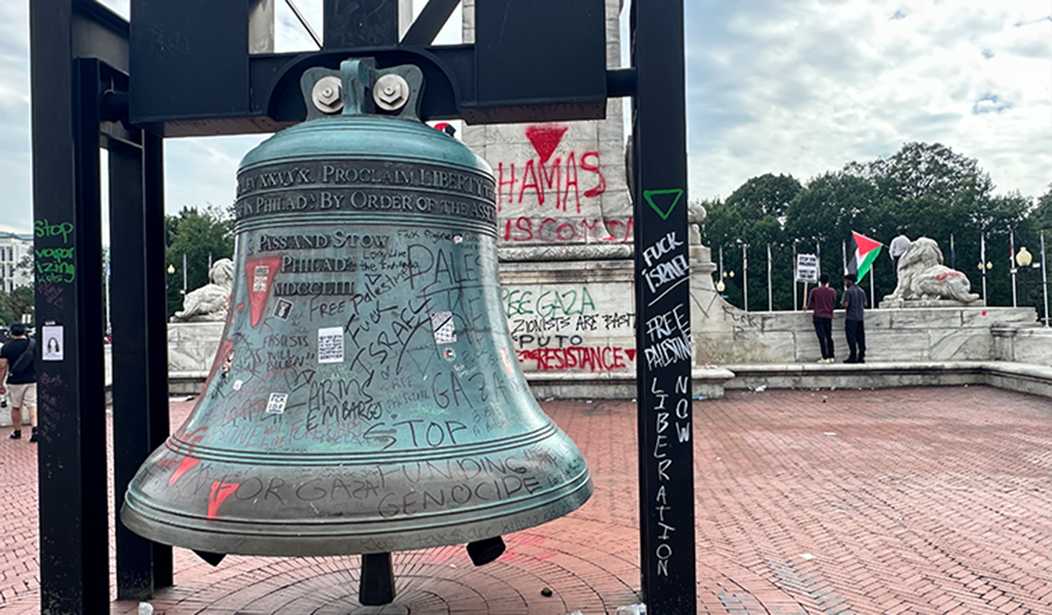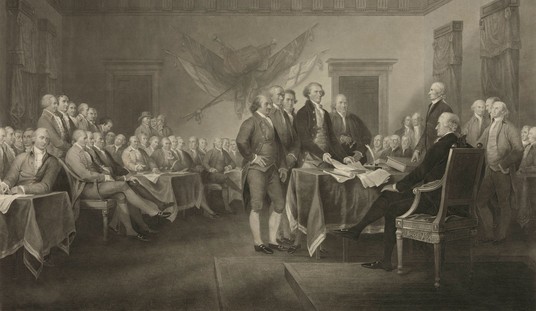This column is co-authored by David May and Melissa Sacks.
Did tax-exempt money help activists release maggots and mealworms on the Israeli prime minister’s delegation to Washington, DC, in late July? The perpetrators reportedly hailed from the Palestinian Youth Movement, which receives tax-exempt donations through WESPAC, a Westchester, NY-based non-profit.
Many of the most active and most hostile pro-Palestinian groups operating today are raising money for their activities through an opaque funding typology: fiscal sponsorship. Fiscal sponsorship allows an initiative to outsource its accounting, payroll, human resources, and acceptance of donations to a supporting non-profit organization. This method is often used by fledgling organizations awaiting tax-exempt status or groups too small to justify having their own accounting department.
However, antisemitic and violent groups currently active on campus are also wielding this shortcut. And this allows them to sustain the opacity of their funding. Unlike registered non-profits, fiscally sponsored projects don’t have to disclose their revenue, staff, or board members. Some non-profits have even turned offering fiscal sponsorship into a business model, collecting contributions in exchange for a percentage.
The lack of transparency inherent to this model means that only the government, with its access to suspicious activity reports and banking information, can ascertain whether the money trail is clean. But fiscal sponsors oversee the accounts of their sponsored organizations and should therefore know the sources of the contributions. They must also know if the sponsored projects have ties to foreign governments or even terrorist groups.
WESPAC currently serves or has served as the fiscal sponsor for many of the boisterous pro-Palestinian groups responsible for last semester’s encampment fiasco, including National Students for Justice in Palestine, Palestinian Youth Movement, and Within Our Lifetime. This arrangement has allowed all three of these groups to avoid the public scrutiny to which registered non-profits are subjected. Remarkably, WESPAC is not required to and does not make public the details of its fiscal sponsorships.
Recommended
WESPAC is not alone. The Progress Unity Fund serves as a fiscal sponsor for other nonprofits that traffic in extreme rhetoric, including one of the leading protest organizers, ANSWER Coalition. One month after the October 7 attacks, ANSWER Coalition served as a national partner for the National March for Palestine protest in Washington, DC, which reportedly had over 300,000 people in attendance. Demonstrators shouted “From the river to the sea,” a call to erase Israel, and other hate-filled rhetoric. ANSWER Coalition worked with Palestinian Youth Movement, National Students for Justice in Palestine, Al-Awda, and others to host a May 24, 2024, People’s Conference for Palestine where students learned about the “student intifada” and how to “kick Zionism off our campus.”
American Muslims for Palestine (AMP), which helped found and continues to fund and train National Students for Justice in Palestine, solicits tax-free donations through a co-located and similarly named fiscal sponsor called AJP Educational Foundation. Several AMP board members and staffers were previously at organizations shut down for funding Hamas, highlighting the potential for nefarious actors to abuse fiscal sponsorship.
The Progress Unity Fund is also a fiscal sponsor of “Pivot to Peace.” Pivot to Peace is critical of the “confrontation between the United States and China,” takes a pro-China stance, and opposes democracy and independence in Hong Kong and Taiwan. Pivot to Peace recently co-organized a pro-China demonstration with CODEPINK and the ANSWER Coalition.
In June 2023, Pivot to Peace activist Henry Liang was indicted for serving as a foreign agent for China. He also allegedly spied on pro-Hong Kong and pro-Taiwan activists in Boston and reported what he learned to the Chinese embassy. The Progress Unity Fund’s fiscal sponsorship of Pivot to Peace and the organization’s relationship to an alleged foreign agent offer a cautionary tale as it relates to the fiscal sponsorship of opaque activist groups.
The Arizona-based, “anti-capitalist” charity, Alliance for Global Justice, is another entity that has been using its 501C3 status to help organizations with ties to sanctioned entities. The organization, whose mission is to “to achieve social change and economic justice by helping to build a stronger more unified grassroots movement,” serves as the fiscal sponsor for Samidoun, an activist group that Israel has accused of working with the Popular Front for the Liberation of Palestine (PFLP), which is a designated terrorist group in the United States. Several Samidoun leaders and activists are reportedly PFLP members.
Samidoun describes itself as a “Palestinian Prisoner Solidarity Network,” campaigning via demonstrations, protests, pressure campaigns, and seminars for the release of Palestinians held in Israeli prisons. Many of the prisoners for whom Samidoun campaigns are members of the PFLP.
In March 2024, Students for Justice in Palestine and Samidoun hosted a webinar at Columbia University titled “Resistance 101” in which Samidoun leader Charlotte Kates and her husband, Khaled Barakat (reportedly Samidoun’s founder and a “leader in the PFLP”), repeatedly praised “resistance” against Israel (a euphemism for terrorism) and lauded their “friends and brothers in Hamas, Islamic Jihad, and the PFLP.”
The Alliance for Global Justice has paid a price for supporting this and other activity. The organization lost the critical ability to accept credit card donations online after getting kicked off of four fundraising platforms for suspected illicit financial activity.
While that might seem like good news, the problem persists. Fiscal sponsorship continues to provide workarounds for organizations that seek to obfuscate their funding and management structure.
There is, of course, still a need for this funding model. It’s a crucial tool for small and emerging non-profits doing good work. But it is also an easy workaround for malign actors to receive tax-free donations without the associated disclosure requirements. Without serious reform, organizations engaged in hate-speech, violence, intimidation, and even material support for terrorism can exploit fiscal sponsorship to receive tax-free donations.
Melissa Sacks is a senior research analyst at the Foundation for Defense of Democracies, where David May (@DavidSamuelMay) is a research manager and senior research analyst. Follow FDD on Twitter @FDD. FDD is a Washington, DC-based nonpartisan research institute focusing on national security and foreign policy.

























Join the conversation as a VIP Member